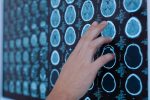The Hidden Danger From Strokes in Sickle Cell Disease
Written by |

I recently watched a film on Netflix called “Strain,” which depicts the life of a child with sickle cell disease. The film mentions that stroke is a symptom of sickle cell, which I don’t believe is widely known.
To mark Sickle Cell Awareness Month in September, I have been using my column to raise awareness about symptoms of this disease that don’t often receive a lot of attention. In this column, I’ll be focusing on the risk of strokes in people with sickle cell.
I first learned about stroke as a symptom of sickle cell when I was much younger. I was in the hospital and another sickle cell patient was talking to me, but I couldn’t understand what she was saying. So, I told my sickle cell nurse that I thought the girl was being “weird” to me. The nurse explained to me that the girl was not being weird, but had suffered something called aphasia as a result of a stroke caused by sickle cell.
At the time, I had no idea that strokes were a potential side effect of sickle cell, but the nurse reminded me that I underwent annual transcranial doppler brain scans to identify areas of abnormal blood flow that could indicate a higher risk of stroke.
Although according to one study, 24% of sickle cell patients experience at least one stroke by age 45, many people, even those who live with and know about sickle cell, are unaware of the risk of strokes. I was one of them. But it is important to remember that in times of crisis, blood flow is restricted, and when this happens in the brain, it can result in a stroke.
I have never experienced a stroke, but I reached out to a number of sickle cell patients who are stroke survivors to better understand their experiences. All of them reported that at the time the stroke happened, they were not quite certain what was going on. But they were acutely aware that they were unable to speak.
Some reported having a severe headache and blurred vision, and all of them said they required blood transfusions, speech therapy, and physiotherapy during the first year after their strokes to overcome short-term side effects, which included left-side paralysis, memory loss, mobility issues, and speech problems. All of the patients said they received medical attention quickly following the onset of their strokes, which they believe prevented them from severe, long-term damage.
One of the patients had a stroke at age 3. I mention this to note that those caring for children with sickle cell must be vigilant, because a stroke could happen at an age, even when a child is unable to identify it or communicate that something is wrong.
Following is a quick memory trick to know what to look for and what to do if you think someone is suffering from a stroke. Think FAST.
F stands for Face. The patient’s face may have dropped on one side, and they may be unable to smile fully as a result.
A stands for Arms. The patient may be unable to lift both arms and keep them raised for a few seconds.
S stands for Speech. The patient’s speech may be slurred, or they may be unable to talk at all, even though they appear to be fully awake.
T stands for Time. If you see any or all of these symptoms, it is time to seek emergency medical assistance.
It is important to seek medical assistance as quickly as possible if a stroke is suspected. We should think of a stroke as a fire in the brain; the longer it is left untreated, the more long-term damage it can cause to the patient. The faster that help is given, the better the chance a patient will survive a stroke and maintain their ability to communicate, and their independence and mobility afterward.
***
Note: Sickle Cell Disease News is strictly a news and information website about the disease. It does not provide medical advice, diagnosis, or treatment. This content is not intended to be a substitute for professional medical advice, diagnosis, or treatment. Always seek the advice of your physician or other qualified health provider with any questions you may have regarding a medical condition. Never disregard professional medical advice or delay in seeking it because of something you have read on this website. The opinions expressed in this column are not those of Sickle Cell Disease News or its parent company, Bionews, and are intended to spark discussion about issues pertaining to sickle cell disease.




Leilah Namulanda Nyongesa
Thanks so much for your messages, they do help and encourage me a lot.
Joshua Ampofo Yentumi
Great info.
Oluyemisi Oluwasola
Thanks for sharing. I have learned more about scd through this colum